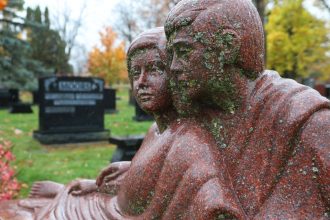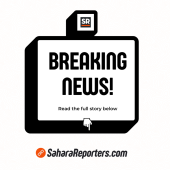In the statement, signed by all the geopolitical leaders drawn from across ethnic, religious, and political divides, the group cited Amnesty International’s report that at least 10,217 Nigerians have been killed in violent attacks over the past two years — figures they described as “wartime levels of slaughter” despite the country being officially at peace.
A coalition of prominent Nigerian leaders has issued a joint statement raising concerns over the country’s worsening security crisis, warning that Nigeria is “bleeding” and risks sliding into chaos unless urgent, coordinated action is taken.
In the statement, signed by all the geopolitical leaders drawn from across ethnic, religious, and political divides, the group cited Amnesty International’s report that at least 10,217 Nigerians have been killed in violent attacks over the past two years — figures they described as “wartime levels of slaughter” despite the country being officially at peace.
The statement highlighted figures from states hardest hit by violence.
According to the statement, Benue alone has recorded nearly 6,900 deaths with over 450,000 people displaced, while Plateau has lost more than 2,600 lives to attacks that have destroyed farms, poisoned water sources, and displaced entire communities.
In Zamfara, at least 638 villages have been razed, with residents now forced to pay criminal levies under threats of mass killings. Similar violence persists across Sokoto, Kebbi, Katsina, and Niger, while Boko Haram resurges in the Northeast, forcing farmers from their lands and reigniting fears of large-scale insurgency.
The leaders condemned what they described as “a dangerous national silence” and the failure of the Nigerian state to maintain its monopoly on the legitimate use of force.
They warned that farmer-herder disputes, once localised, have now morphed into sectarian wars fuelled by military-grade weapons, impunity, and a collapse of governance at community levels.
Drawing lessons from other nations such as Colombia, Rwanda, and Northern Ireland, the leaders urged Nigeria to confront its deep ethnic and religious divides through reforms, reconciliation, and inclusive governance.
Rejecting ethnic scapegoating, the leaders stressed that perpetrators of violence are Nigerians from different communities, driven by systemic problems of poverty, injustice, arms proliferation, and weak governance. They called for justice to be “blind to identity.”
To halt the bloodshed, the statement proposed the urgent creation of a Presidential Task Force on National Security with extraordinary powers to coordinate intelligence, disarm armed groups, reintegrate displaced populations, and publish quarterly reports on arrests and prosecutions to rebuild public trust.
The leaders warned that Nigeria stands on a “knife-edge,” and history will judge not the bandits but those in authority who failed to act decisively.
The statement read, “We must resist the temptation to blame this violence on one group alone. As recent revelations in Katsina, Anambra, Benue and Plateau have shown that, while some of the attackers are foreigners with local collaborators, many of the attackers are Nigerians, sons of the soil, from various communities, who have abandoned kinship for criminality.
“This is a Nigerian problem with Nigerian faces. The challenge is not ethnic, but systemic: poverty, arms proliferation, impunity, injustice, and the erosion of local governance. We must lift the veil of stereotypes and deal with the truth: criminals come from every group: justice must be blind to identity.
“We refuse to be silent accomplices. We call on the Presidency, National Assembly, Governors, traditional rulers, religious leaders, security chiefs, civil society, and every Nigerian of conscience: let us forge a new path.
“We propose urgently creating a Presidential Task Force on National Security, with extraordinary powers and a clear mandate to coordinate and execute emergency measures to halt the violence. This Taskforce should work directly with the National Security Adviser (NSA) and all relevant security, intelligence, and humanitarian agencies.”
The leaders demanded for operationalising community-based early warning systens and rapid response frameworks, ensuring that intelligence from local actors, traditional leaders, and civil society triggers immediate coordinated action, not bureaucratic delay.
Implementing a disarmament and reintegration programme for conflict zones, particularly in the North East, North Central and North West, combining humanitarian assistance with strategic security deployment to enable the safe return of displaced populations.
“Driving accountability through quarterly public security reports, disclosing arrests, prosecutions, and progress made- thereby rebuilding public trust and strengthening civilian oversight.
“The Presidential Taskforce must be time-bound, results-driven, and composed of experienced security professionals, non-partisan Nigerians of unquestionable integrity, and war-time decision makers who are bold enough to use their mandate responsibly and transparently.
“The body should report directly to the President but operate independently of political pressures. These are unusual times, they require unusual but constitutional measures,” they explained.
They added, “Nigeria stands on a knife-edge. Whether we tip into chaos or climb toward peace depends on what we do next. If Rwanda, Colombia, and Northern Ireland can emerge from darker abysses, so can we, if our leaders, across the villa, government houses and Assembly, our palaces, pulpits, and barracks, take the more challenging road of reconciliation, justice, and reform.
“The right of every Nigerian child – in Bokkos, Gwoza, Maru or Yelwata – to grow up without fear is not negotiable.
“History will not judge the bandits. It will judge us who had the power to protect, and either rose to this moment or shrank from it. May God grant us the courage to act, and may He heal our land.”












